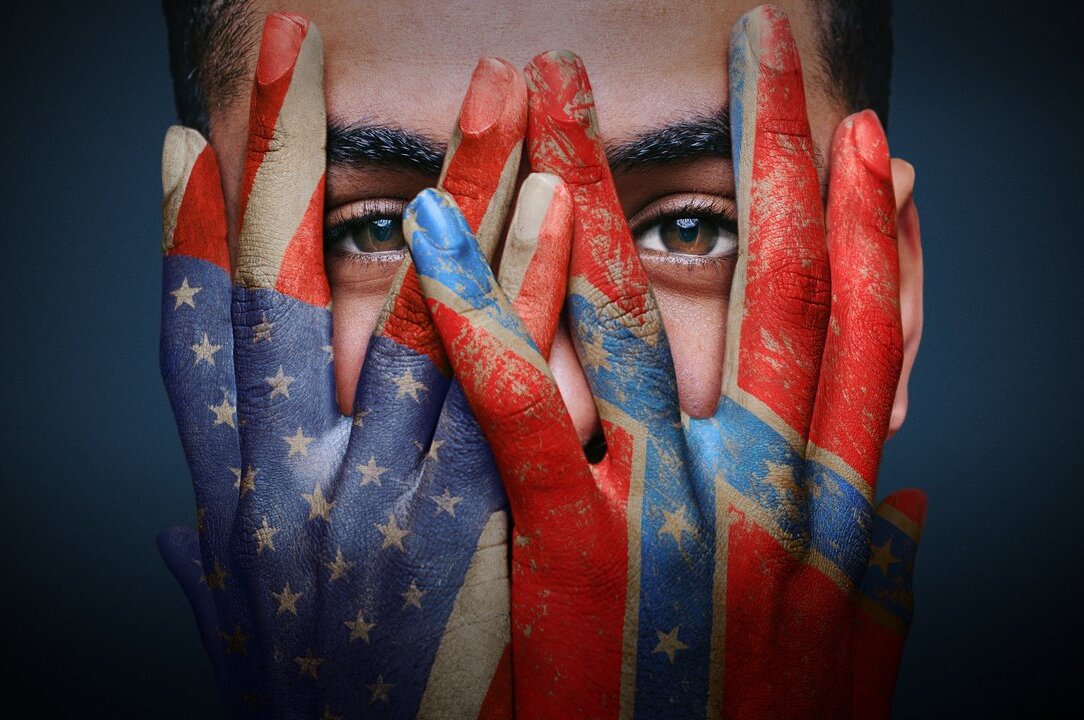One of the most revelatory “social issues” docs to hit theaters this year (NYC and LA on September 17) is the provocatively titled Civil War (or, Who Do We Think We Are), the latest from veteran filmmaker Rachel Boynton (Big Men, Our Brand Is Crisis). Executive produced by an all-star team that includes Henry Louis Gates, Jr., Sam Pollard and Brad Pitt, the film is a multi-year, multi-state historical journey spanning two (polar opposite) presidential administrations and several (equally segregated) cities from the liberal North to the conservative South.
And by going places rarely seen onscreen – such as the McCallie School for Boys in Chattanooga, Tennessee and the Holmes County Central High School in Lexington, Mississippi – Boynton is able to give us all a lesson in radical empathy, allowing audiences to learn right alongside the director as she searches for answers from high school students as much as from academic scholars.
Indeed, the US educational system is a good place to begin, especially for us Northern white liberals (like the director herself) who flock to social impact docs like Civil War. But rather than let us bask in our antiracist righteousness Boynton does something truly remarkable by challenging that high-ground certainty, turning the progressive prism on its head. The Lost Cause narrative may be a fake feel-good story the South likes to tell about itself, but so is the North’s own flawed morality tale.
As an American who did not grow up south of the Mason-Dixon Line, I was an adult before I became aware that so many of my fellow citizens studied from textbooks that absurdly taught that slavery was not really the cause of the Civil War. For them it was supposedly fought on the basis of “states’ rights,” on economic and/or religious grounds. And yet I also don’t recall ever having been schooled on what actually precariously bonded the two sides back together after that costly war. There was only the hazy notion of the abolitionist North’s inherent moral superiority, of a deified Lincoln benevolently “freeing the slaves” – as if one half of our nation was some sort of antiracist utopia fighting to form a more perfect union. What the record shows is that the North seems to have likewise rewritten its particular history – eliding the shameful truth that the goal had always been to end slavery but certainly not white supremacy. Indeed, Black inferiority was perhaps the only thing both North and South white folks could wholeheartedly agree upon.
And the same went for segregation. Both North and South caucasians agreed this was a fine way to keep Blacks in their place
If viewed from this angle the Lost Cause can be read as not just an attempt by the South to mess with history, but also as a cry to be heard, a plea for some nuance to the narrative – and a fat middle finger to the North’s hypocrisy. After all, Reconstruction ushered in a celebrated slew of Black (and “mulatto”) men to positions of power in both state legislatures and the US Congress – all representing the South. To wit, how would the North feel if it suddenly had to contend with Blacks being voted into office at the same rate the South was experiencing? Unfortunately, we’ll never know because the suddenly free Blacks still lived overwhelmingly in the South, so white Northerners retained their reign. (Though we can venture a racist guess.)
And the same went for segregation. Both North and South caucasians agreed this was a fine way to keep Blacks in their place – literally. If Blacks stayed on Deep South land as sharecroppers then that would keep them from moving to the North – which already had its hands full with the “horror” of unprecedented immigration. Through this lens the North, rather than being “virtuous,’ is in reality enabling and complicit in order to keep its own hold on white supremacy. And if our educational system is any indication the plan seems to have been a wild success. Today the most segregated schools in the US aren’t in Birmingham or Biloxi. They’re in “liberal” NYC.
There’s a darkly funny point made by a Black female professor in the film, noting that while plantations are popular sites for weddings, “No one would go to Auschwitz to get married.” Ultimately, what everyone must never forget is that the Civil War was not fought to dismantle a racist structure. The US caste system as the natural state of things was – and still is – an insidious given throughout the land. And yet we must also take pains to remember that racism itself is a white people’s problem. Which is why the world could use more privileged filmmakers like Boynton, fearlessly willing to relinquish power and interrogate her own – and by extension our – historically righteous assumptions.

